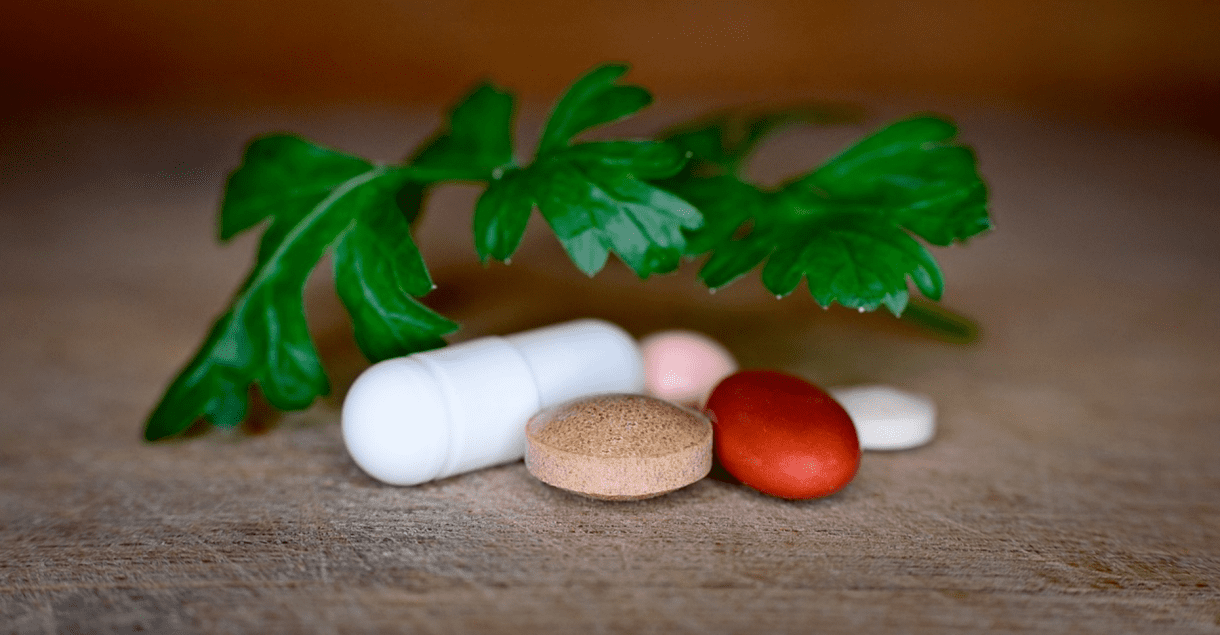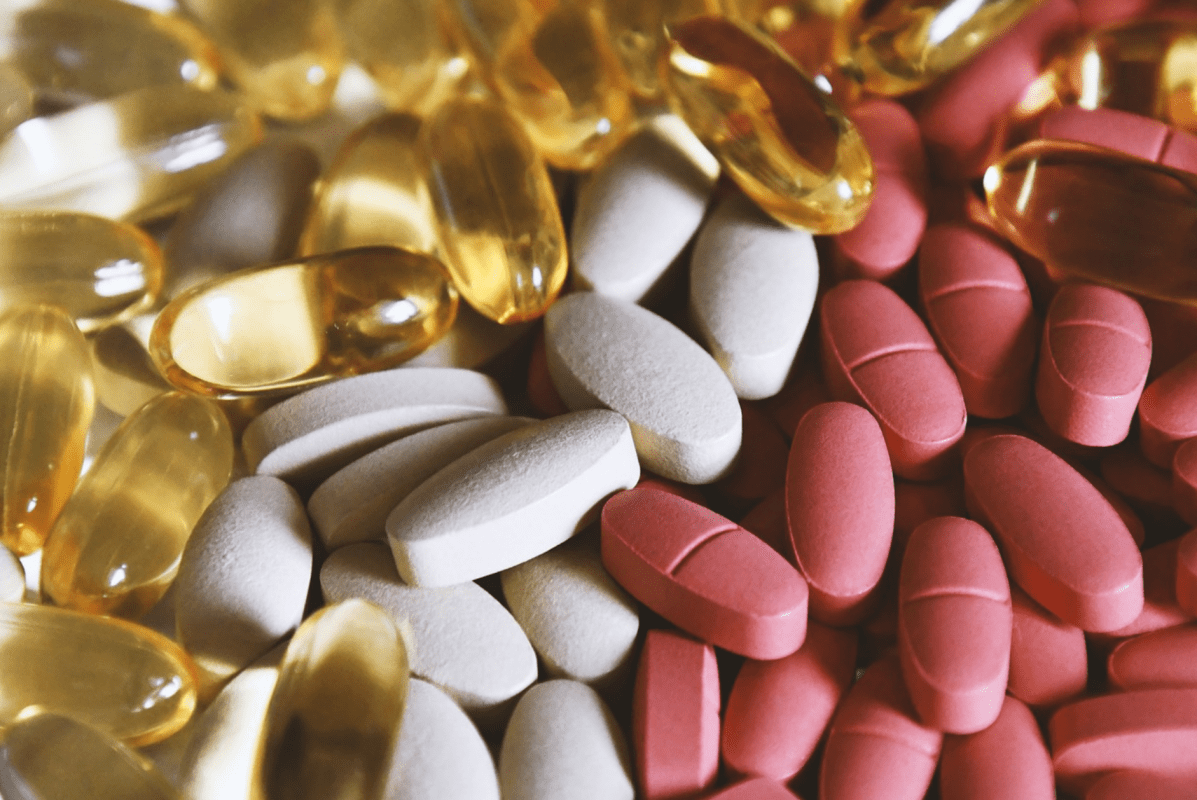There has long been a debate over whether a vegan diet can provide enough nutrition in terms of minerals and vitamins for the human body to sustain itself to the fullest.
The reason for this worry is simple: there are certain key nutrients that a typical plant-based diet does not provide enough of, such as vitamin B12, vitamin D, DHA/EPA, iodine, zinc, selenium, magnesium, and vitamin K2. As a result, a vegan diet may need support from supplements to give a person an extra boost.
If you are considering which supplements to add to your usual vegan diet, then the list of supplements below may be of interest to you.

Omega-3 Fatty Acids
The importance of Omega-3’s in a vegan diet is well-known, but the majority of people are unaware that not all Omega-3’s are created equal. There are three kinds of omega-3 fatty acids, alpha-linolenic acid (ALA), eicosapentaenoic acid (EPA), and docosahexaenoic acid (DHA) that are found in different foods and capable of promoting different bodily functions.
ALA omega-3 fatty acids can be found in flax or chia seeds and are easy to add to yogurts and salads, however, many vegan foods lack EPA and DHA omega-3s. To provide the body with enough nutrients some vegans may choose to take vegan omega 3 DHA supplements with their meals. Keeping up good levels of all kids of omega-3s is important because they are vital for maintaining good cardiovascular and brain health.
Omega-3’s play a key role in nearly every cell of the human body. As such, a daily intake of these essential fatty acids is critical for a range of bodily processes ranging from regulating your cholesterol levels to powering the nervous system.
Omega-3s are also becoming appreciated for helping to manage the low-grade, systemic inflammation that is related to many chronic diseases, like Alzheimer’s disease. They are also regularly considered to help prevent and treat heart disease.
Similar to vitamin D, people who follow a vegan diet usually do not consume enough omega-3s from their daily diet alone so as a result, vegans tend to have lower levels of long-chain omega-3 fatty acids in their blood and soft tissues. Therefore, they may benefit from adding EPA and DHA to their diet.
Vitamin B12
Several vegan-friendly foods and supplements contain vitamin B12 including cereal, chlorella, organic produce, mushrooms, nutritional yeast, seaweed, and spirulina.
Many people assume that vegans don’t have to worry about having a B-12 deficiency because they eat plenty of green vegetables. However, this is hardly true and although anyone can have low vitamin B12 levels, vegetarians and vegans can have a higher risk of experiencing a deficiency, especially for vegans who are not taking any supplements.
Vitamin B12 supports the functioning of some important biological processes, these include regulating protein metabolism and promoting the production of red blood cells. A deficiency of B-12 can lead to health conditions such as anemia, nerve damage, and heart disease.
For many vegans, the only way to get the amount of B-12 their bodies need is by consuming B12-fortified foods or taking a vitamin B12 supplement. Some B12-fortified foods regularly consumed by vegans are plant milk, soy products, breakfast cereals, and nutritional yeast.
Vitamin C
Protein sources are usually animal-based foods, such as poultry, meat, eggs, dairy products, and fish. Vegans consume plant-based foods, like vegetables, fruits, nuts, seeds, and grains, to obtain protein, which usually lacks essential amino acids. So, it’s advisable to have enough vitamin C in the body to boost plant-based protein absorption and utilization for optimal health.
Vitamin C and protein work together to repair damaged cells and tissues to attain more energy and maximum work performance every day. Therefore, vegans should also increase vitamin C consumption by eating tomatoes, strawberries, cauliflower, broccoli, and other plant sources of this vitamin.
Vitamin C supplementation helps plant-based protein repair tissues and produce collagen for the proper growth and functioning of the cartilage, blood vessels, tendons, and ligaments. This vitamin plays a vital role in combating infection or boosting immunity. Furthermore, vitamin C is necessary for faster wound healing and healthy teeth and bones.
In addition, vegans need enough vitamin C to promote skin health through collagen production. A vegan with dry skin usually lacks specific vitamins, minerals, fatty acids, and proteins in the diet. Learn how to care for aging skin, which involves vitamin C supplementation, and the use of the right skincare products, such as anti-aging serums, to help resolve this problem.
Vitamin D
Vitamin D is a fat-soluble vitamin that helps enhance the absorption of calcium and phosphorus from the gut. It also influences many other bodily processes, including immune functions, mood, memory, and muscle recovery.
Nicknamed the “sunshine” vitamin because it is activated in the human body by exposure to the Sun. You can usually get enough vitamin D by ensuring you get at least 15 minutes of direct sunlight around noon or the early afternoon when the sun is at its strongest. However, some people may develop vitamin C deficiencies such as the elderly, people with darker skin, people in colder climates, and people who don’t go out enough or sleep all day.
Just like humans, other animals activate vitamin D as a result of sun exposure, therefore when people consume animal products such as eggs, fish, or meat they absorb a fraction of vitamin D too. Furthermore, many dairy products are also fortified with vitamin D, however, the above foods are not suitable for vegans, although fortunately there are several vegan vitamin D supplements available.
Iron
Critical for the production of new DNA and red blood cells, and oxygenation of the blood, there are two types of iron found in living things, heme and non-heme. Heme iron is only found in animals whilst non-heme iron is inside plants.
Vegans with a low iron intake should aim to eat more iron-rich foods, such as beans, dried fruit, green vegetables, nuts, peas, and seeds. Iron-fortified foods, such as cereals, enriched bread, and some plant milk, can also help provide more iron in a vegan diet. Other ways to maintain a good level of iron in your body if you are vegan is to cook with cast-iron pots and by adding vitamin C to iron-rich foods to help with the absorption of iron.
Zinc
One mineral that is important for the body’s metabolism, immune system, and ability to repair cells is zinc. An insufficient intake of zinc can lead to developmental problems, diarrhea, hair loss, and slow healing.
The recommended daily intake for zinc is approximately 8–11 mg per day for adults, whilst pregnant women require a higher dose of around 11–12 mg, however, few plant-based foods contain high amounts of zinc. In addition, the ability of the body to absorb zinc from certain plant-based foods is limited because they contain phytate. Thus, vegetarians are encouraged to take 1.5 times the recommended amount of zinc.

Vegans suffering from a zinc deficiency or worried they are not getting enough zinc intake in their diets may want to consider taking zinc gluconate or zinc citrate supplement daily as it can provide 50 to 100% of the zinc your body needs each day.
Even though a well-planned vegan diet can fulfill, every nutritional need, more often than not it is difficult for vegans to get all the minerals and vitamins for their body to operate at full capacity. Therefore, vegans who are unable to meet their dietary needs should consider taking supplements. Still, it’s best to consult your doctor or healthcare expert before beginning a new supplement regime.